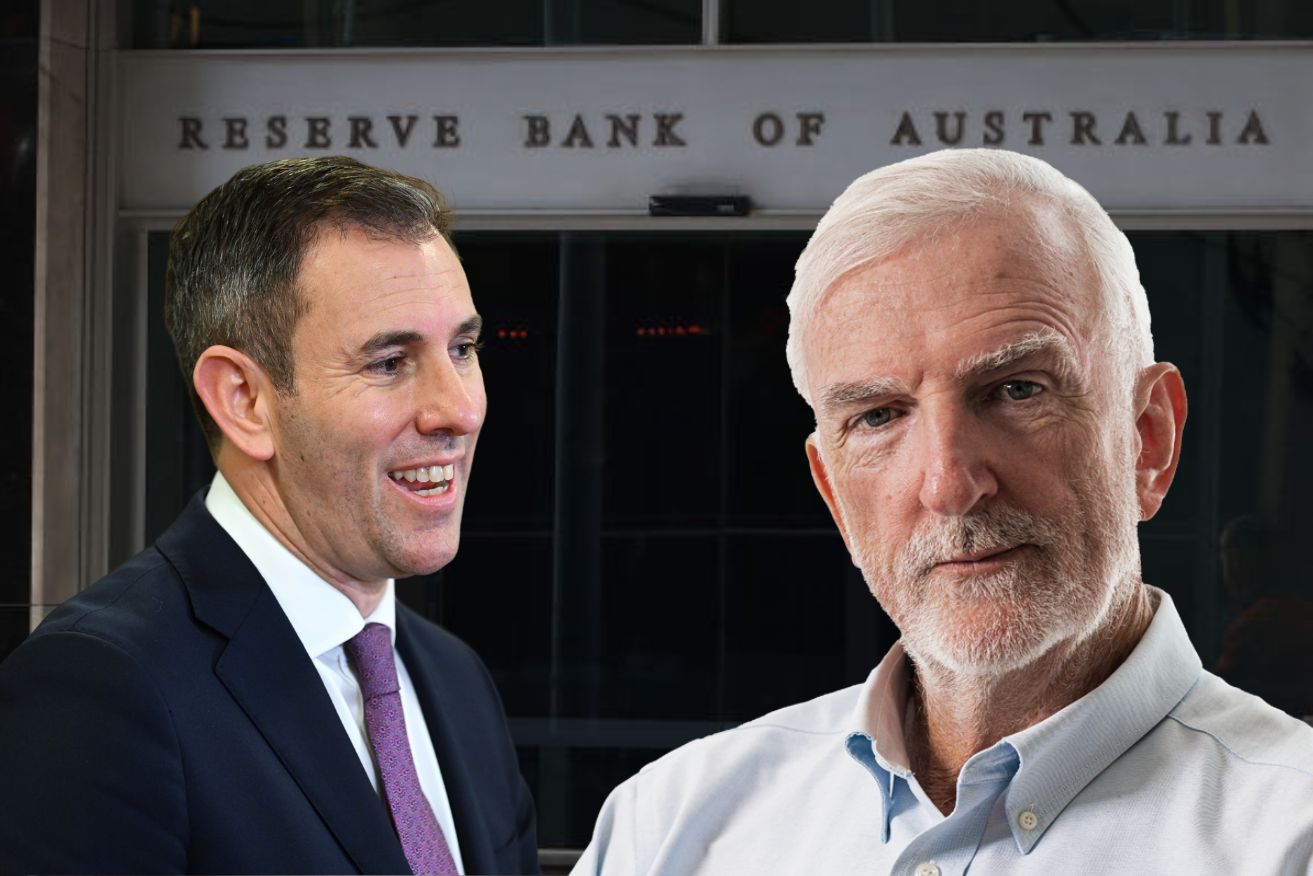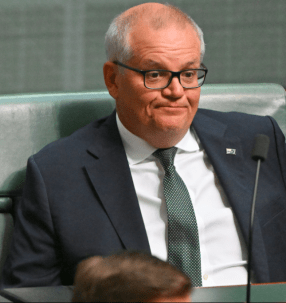Michael Pascoe: RBA caught snoozing on stage-three tax cuts and inflation


The stage-three tax cuts need to be analysed further by the RBA and government, writes Michael Pascoe. Photo: TND/Getty
Via various Freedom of Information requests, it looked like the Reserve Bank of Australia has never studied, reported, briefed, spreadsheeted or generally put a thought in writing about the inflationary impact of the looming stage-three tax cuts.
That “look” is now confirmed.
Having spent the better part of four decades as an RBA watcher, I find that amazing.
To me, it either means our central bank is incompetent or has become so cowered by Treasury’s muscle flexing that the bank is not game to chance assessing the impact of fiscal policies lest such policy be demonstrated to be embarrassing folly.
Don’t go looking for “frank and fearless” advice from what has long been our pre-eminent source of independent economic research and thinking.
Maybe make that “had” long been.
Consider this: The RBA’s main job is achieving a happy inflation rate, a job that requires much studying of whatever causes inflation, how much inflation that “whatever” causes and whatever those whatevers might be up to in the future.
The pursuit of such knowledge has the bank’s economists chasing down the outlook for individual commodities, building complicated computer models for (wildly inaccurately) guesses about where wages might be heading, researching what people pay their dentist and the price of eggs in China – but the impact of stage-three tax cuts dropping an extra $21 billion into the economy next financial year is a no-go zone.
The only thing more astounding is that the Treasury allegedly isn’t game to go there either. According to Jim Chalmers, his department couldn’t find any documents dealing with the impact of stage-three tax cuts on inflation either.
At this stage in an episode of Yes Minister, Sir Humphrey would allow a condescending smile and a slight lift of an eyebrow to do his talking. “Never ask a question for which you don’t want the answer” would be taken as understood.
Last month we reported on the RBA graph showing a subtle but clear change in the bank’s inflation expectations for the second half of 2024 – an upward blip coinciding with the stage-three tax cuts.
Former senator and current transparency warrior Rex Patrick alerted me to a FOI request he had sent to the bank on July 1 asking for any documents relating to the effects of the tax cuts on inflation/interest rates. He received a reply that the bank did not have any.
Mr Patrick and I separately had the same idea – we both filed new FOIs for any such documents since July 1. On Monday, we both received the same answer – there are no such documents.
“Inflation is supposed to be a core focus of the bank and yet, in response to my very broad request for any analysis or briefs on the inflationary effects of stage-three tax cuts, they came back with nothing. I’m shell-shocked,” said Patrick.

The stage-three tax cuts are a hangover from the Scott Morrison years. Photo: AAP
“I know it’s a political hot potato, but the RBA doing absolutely nothing on this significant variation to household disposable incomes would take a tremendous amount of bureaucratic discipline – a case of extreme self-censorship.”
It turns out the bank’s standard forecasting practice is to incorporate government policy at the point that it is legislated, but with the stage-three tax cuts being legislated way back in 2018 (when 2024 was two elections away), the bank has only included them in its forecasts for the past two years.
The technicalities of the RBA’s forecasting is that it incorporates planned tax changes via a forecast for aggregate tax payable taken largely from projections by the Australian Taxation Office and the Parliamentary Budget Office.
Thus fiscal policy initiatives are not for examining, just taken as given, move right along and know your place. Whatever tax policy is introduced, it’s only considered in the aggregate, submerged in the general soup.
The RBA really does not have any work that separately quantifies the effect of the stage-three tax cuts on the economy. Amazing.
For all the attention afforded monetary policy, fiscal policy – what the government does – has much bigger impact on the economy. It is the single biggest factor.
The RBA staying clear of assessing the inflationary impact of individual government policies is risible. Treasury claiming it doesn’t is simply laughable.
On November 29, Senator David Pocock successfully moved a motion in the Senate requiring the Treasurer to “table documents relating to the impact of the stage-three tax cuts on inflation”.
On December 6, Treasurer Chalmers replied: “Please be advised that no documents in scope of the order were identified.”
Either the Treasurer/Treasury is in contempt of the Senate or Treasury needs a vastly more thorough review than that it imposed on the RBA if it goes about framing and developing such massive injections of demand without considering one of the obvious and serious consequences.
Treasury is apparently suffering an incomprehensible level of incompetence, which might help explain the bad policies it was responsible for during COVID.
If Treasurer Chalmers wasn’t being economical with the truth in answering the Senate motion, it becomes a worry that Sarah Hunter, the RBA’s new chief economist and assistant governor (Economic) is coming from Treasury where she “oversees the analysis of current conditions and economic forecasts, advising the government on a broad range of economic and policy issues”.
If that role – never mind the rest of Treasury – hasn’t had the curiosity and initiative over the past year or so to investigate the inflationary impact of pouring tens of billions of dollars onto what has been perceived as an economy with too much demand, it’s going to be an awfully big jump to suddenly be No.3 at the RBA.
Chalmers’ Statement on the Conduct of Monetary Policy earlier this month subtly and not-so-subtly increased Treasury’s sway over the RBA, while waving a red herring in the form of surrendering the Treasurer’s power to overrule monetary policy.
What now looks like the funniest paragraph in that statement is:
“The government recognises the role that sound fiscal management plays in achieving the Reserve Bank board’s objectives. In recognition of this, the Reserve Bank and the government (through the Treasury) commit to working together to enhance their understanding of prevailing macroeconomic conditions and the impact that monetary and fiscal policy settings have in influencing these conditions.”
Get back to me when either institution has the ticker to be serious.








